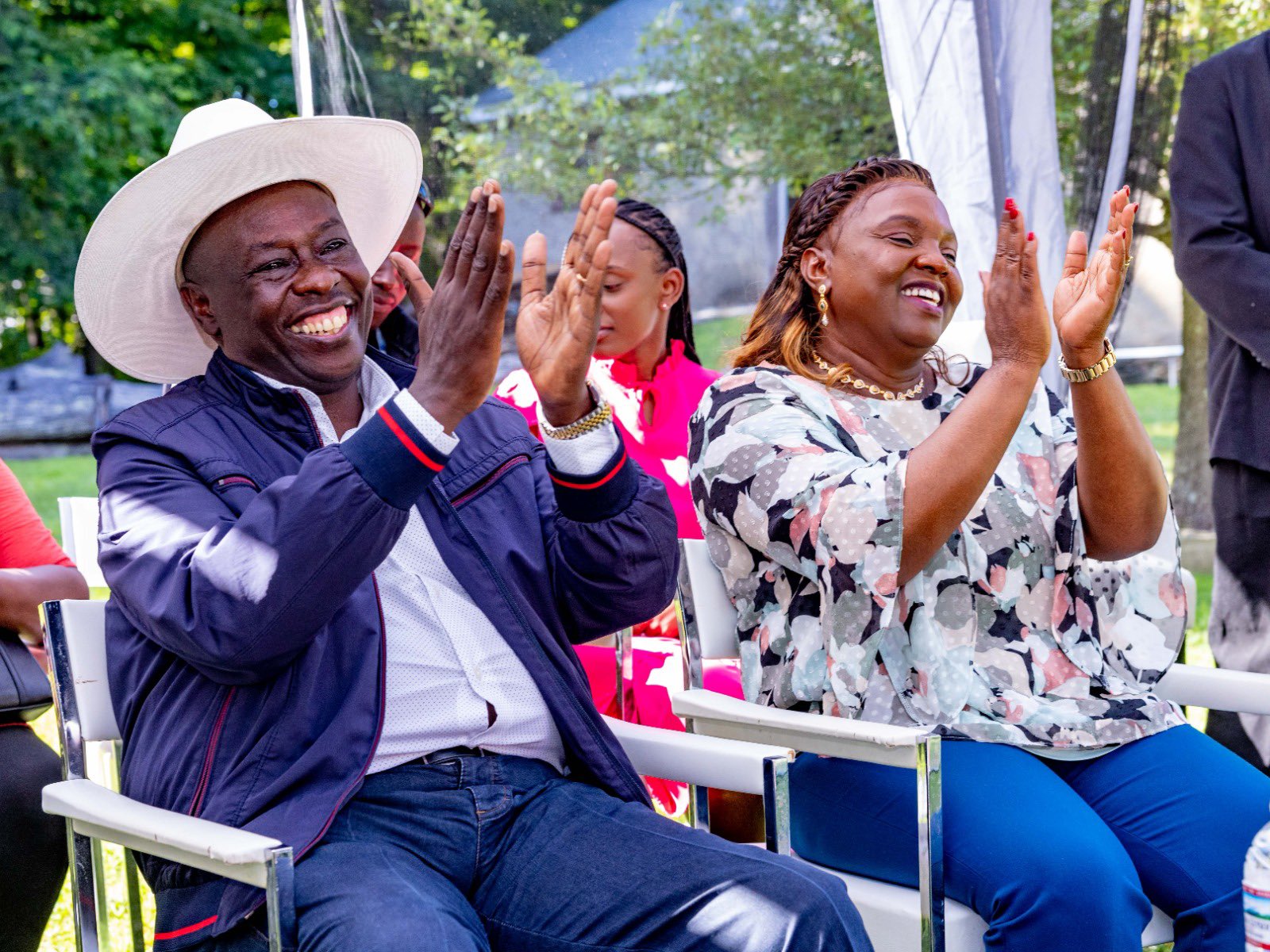Opinion
Why Gachagua Is All About Targeting Mt Kenya Diasporans in His US Tour
For now, he’s betting that securing his ethnic base first provides the foundation for wider coalition-building later.

Rigathi Gachagua’s two-month American odyssey tells a story of calculated political arithmetic wrapped in the familiar rhetoric of ethnic solidarity.
The former Deputy President’s strategic targeting of Mt Kenya diasporans across Seattle, Baltimore, Boston, and Washington DC reveals a campaign blueprint built on demographic realities and financial pragmatism rather than mere tribal nostalgia.
The numbers speak volumes. Gachagua’s own assertion that “80 per cent of the diaspora brigade in the United States” originates from Mt Kenya transforms what might appear as ethnic pandering into shrewd electoral mathematics.
This isn’t just about courting familiar faces; it’s about accessing the most substantial voting bloc within America’s Kenyan community, a demographic that could prove decisive in 2027’s presidential arithmetic.
The geographical precision of Gachagua’s tour further underscores this strategic thinking. His concentration on the DMV corridor—DC, Maryland, and Virginia—places him at the epicenter of both Kenyan diaspora concentration and American political influence.
Baltimore and Northern Virginia house thousands of Kenyans working within the corridors of US power, while Washington DC offers proximity to lobbying networks that could amplify his international profile.
This isn’t coincidental; it’s calculated positioning for a politician seeking to rebuild his credentials after last October’s impeachment.
Academic observers recognize this tactical approach.
As Prof David Kimori notes, diasporans “are influential in Kenyan elections and in fundraising for politicians,” making them invaluable assets for any serious presidential contender.
Gachagua understands that diaspora dollars have historically bankrolled major campaigns, and Mt Kenya professionals in America represent some of the most financially capable contributors within Kenya’s overseas community.
However, Gachagua’s messaging reveals the double-edged nature of ethnic-centered campaigning.
His controversial statements at Massachusetts churches about Mt Kenya communities “withholding their investments in Kenya waiting for the end of the Ruto regime” demonstrates both the power and the peril of his approach.
While such rhetoric energizes his core base, it simultaneously reinforces perceptions of him as a regional kingpin rather than a national leader.
This tension became evident when Kenyan Gen Z activists in the US challenged Gachagua to “position yourself as a national leader” and confronted him over what they termed “tribal rhetoric.”
The generational divide within the diaspora suggests that while older Mt Kenya emigrants might respond to traditional ethnic appeals, younger Kenyans seek more inclusive national messaging.
The timing of Gachagua’s tour also carries strategic significance. By establishing diaspora networks early in the electoral cycle, he positions himself ahead of competitors like Fred Matiang’i, who is planning his own August visit to Minneapolis.
This early mover advantage allows Gachagua to establish organizational structures and financial pipelines that could prove crucial as the 2027 campaign intensifies.
Yet the tour’s focus on Mt Kenya diasporans exposes both Gachagua’s political strength and his fundamental weakness.
While he commands genuine loyalty within his ethnic base, his narrow targeting suggests recognition that expanding beyond this demographic remains challenging.
His establishment of DCP offices in Washington speaks to long-term organizational ambitions, but the ethnic-centered messaging indicates uncertainty about broader national appeal.
The financial dimension cannot be understated. Diaspora remittances represent billions of dollars annually, and politically motivated contributions from successful professionals could substantially fund campaign operations.
Gachagua’s calculated courtship of this constituency reflects understanding that modern Kenyan politics requires both grassroots enthusiasm and substantial financial resources.
Ultimately, Gachagua’s American tour represents sophisticated ethnic politics masquerading as diaspora engagement.
His targeting of Mt Kenya communities isn’t mere tribal solidarity—it’s electoral mathematics applied to demographic realities.
Whether this approach can evolve into broader national appeal remains the central question facing his 2027 ambitions.
For now, he’s betting that securing his ethnic base first provides the foundation for wider coalition-building later.
The tour’s success will likely be measured not in headlines generated or crowds attracted, but in dollars raised and organizational networks established. In this calculus, Mt Kenya diasporans represent Gachagua’s most reliable constituency—politically sympathetic, financially capable, and geographically concentrated in America’s most influential corridors.
It’s politics as demographic targeting, wrapped in the familiar language of community solidarity.
Kenya Insights allows guest blogging, if you want to be published on Kenya’s most authoritative and accurate blog, have an expose, news TIPS, story angles, human interest stories, drop us an email on [email protected] or via Telegram
-

 Grapevine4 days ago
Grapevine4 days agoAlleged Male Lover Claims His Life Is in Danger, Leaks Screenshots and Private Videos Linking SportPesa CEO Ronald Karauri
-

 Lifestyle7 days ago
Lifestyle7 days agoThe General’s Fall: From Barracks To Bankruptcy As Illness Ravages Karangi’s Memory And Empire
-

 Americas2 weeks ago
Americas2 weeks agoEpstein Files: Bill Clinton and George Bush Accused Of Raping A Boy In A Yacht Of ‘Ritualistic Sacrifice’
-

 Business2 weeks ago
Business2 weeks agoCooking Fuel Firm Koko Collapses After Govt Blocks Sh23bn Carbon Deal
-

 Business2 weeks ago
Business2 weeks agoABSA BANK IN CRISIS: How Internal Rot and Client Betrayals Have Exposed Kenya’s Banking Giant
-

 News1 week ago
News1 week agoAUDIT EXPOSES INEQUALITY IN STAREHE SCHOOLS: PARENTS BLED DRY AS FEES HIT Sh300,000 AGAINST Sh67,244 CAP
-

 Investigations1 week ago
Investigations1 week agoEpstein Files: Sultan bin Sulayem Bragged on His Closeness to President Uhuru Then His Firm DP World Controversially Won Port Construction in Kenya, Tanzania
-

 Business1 week ago
Business1 week agoKRA Can Now Tax Unexplained Bank Deposits













